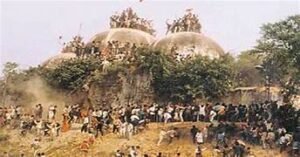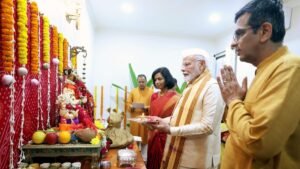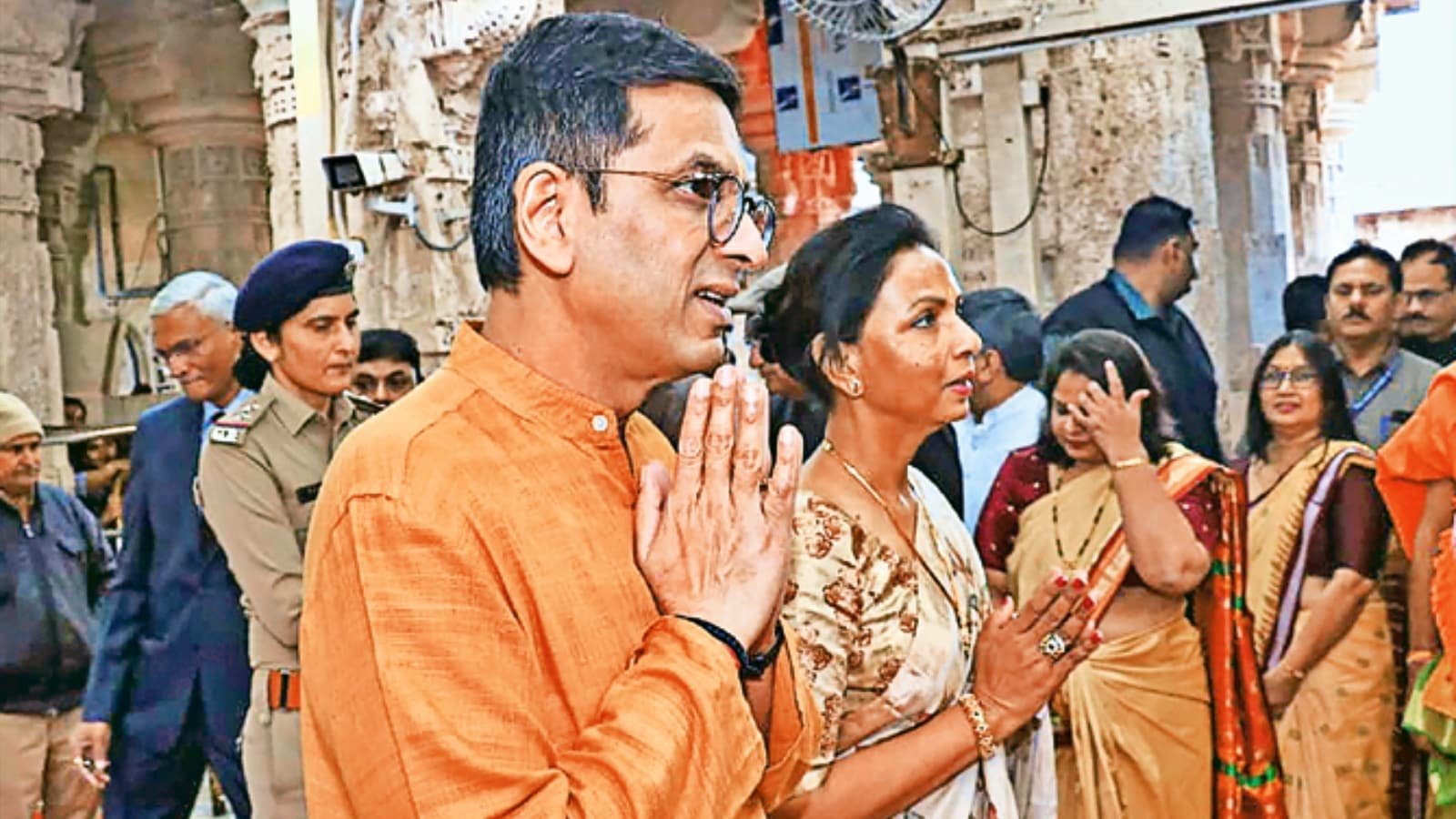Syed Zubair Ahmad
Credit: Muslim Mirror
Former Chief Justice of India, D.Y. Chandrachud, has recently stirred controversy with his remarks on the Ayodhya dispute, remarks that not only contradict the official judgment he himself co-authored but also expose his ideological leanings. In a recent interview with journalist Srinivasan Jain, Chandrachud declared that the Babri Masjid had been built by demolishing a temple and, therefore, the act of clandestinely placing idols inside the mosque in 1949 was not wrong.
This statement is both shocking and revealing. Shocking, because the Supreme Court’s 2019 Ayodhya verdict – to which Chandrachud was a signatory – explicitly noted that there was no conclusive evidence to prove that the mosque was constructed after demolishing a temple. The judgment also categorically declared the demolition of the Babri Masjid in December 1992 to be an “illegal act” that violated the rule of law. Yet, five years later, one of the very authors of that historic judgment is casually overturning those principles in an interview.
This raises an unsettling question: Was the Ayodhya verdict itself driven more by faith than by facts? And are Chandrachud’s recent remarks an inadvertent confession of the communal biases that shaped it?
His words echo almost word-for-word the propaganda of the Sangh Parivar, which for decades has pushed the narrative that the mosque was built after demolishing a Ram temple. That a retired Chief Justice is now repeating this line, without evidence and in direct contradiction to his own court’s findings, gives credence to the view that the judiciary, far from being neutral, has been complicit in validating Hindutva’s political project.
It is not the first time Chandrachud has been accused of wearing his ideological leanings on his sleeve. During his tenure as CJI and even after retirement, he has taken steps and made statements that critics describe as revealing an RSS-inspired mindset. Consider, for example, his decision to invite Prime Minister Narendra Modi to his home for Ganesh Puja – a gesture that blurred the lines between personal religiosity and institutional independence. Or his admission that before writing the Ayodhya judgment, he sought “guidance from God.” Such remarks may appear pious to some, but they strike at the heart of judicial impartiality. For a judge, particularly the Chief Justice of India, to admit that divine inspiration guided a judgment of such magnitude raises questions about whether constitutional reasoning was sidelined in favor of faith.
His defense of the Gyanvapi mosque survey decision in the same interview further reinforces this pattern. By offering an alternative reading of the 1991 Places of Worship Act, he effectively opened the door to reviving old communal disputes. That verdict, critics point out, was not an exercise in protecting the law, but rather in undermining it. By loosening the protections enshrined in the Act, Chandrachud facilitated precisely the kind of majoritarian agitation that the law had been designed to prevent.
Equally troubling is his casual dismissal of the principle that judges should not accept positions of profit after retirement. Chandrachud openly admitted that he does not subscribe to this doctrine, a stance that immediately invites suspicion. If a judge consistently issues rulings that benefit the government of the day, and then openly signals his willingness to accept post-retirement appointments, the public is left to wonder: were his judgments independent, or were they a down payment for future rewards?
It is worth recalling that in several high-profile cases, Chandrachud’s decisions proved advantageous to the Modi government. His handling of the Gyanvapi dispute, his interpretations of the Places of Worship Act, and now his retrospective justification of the 1949 desecration of the Babri Masjid all align seamlessly with the government’s ideological narrative. When seen in this light, his recent interview cannot be dismissed as a slip of the tongue; it looks more like a continuation of a consistent pattern.
The larger implication of Chandrachud’s remarks is grim. At stake is not only the credibility of one former Chief Justice but also the integrity of the judiciary itself. When judges appear to rationalize illegal acts – like the surreptitious placing of idols inside a mosque – they undermine the very foundation of the rule of law. When they echo partisan propaganda, they erode public confidence in judicial neutrality. And when they hint at willingness to accept rewards from the government, they damage the perception of judicial independence irreparably.
Justice Chandrachud’s legacy will now likely be judged through the lens of these remarks. For many, his words confirm what they long suspected: that the judiciary has been increasingly aligned with the majoritarian politics of the ruling establishment. His interview has stripped away the façade of neutrality and laid bare the communal mindset that guided not only him but also, tragically, some of the most consequential judicial decisions of our time.
Disclaimer: The views expressed in this article are solely those of the author and do not necessarily represent the views of The Milestone.
Source Link:- https://muslimmirror.com/justice-d-y-chandrachuds-remarks-on-ayodhya-a-window-into-his-mindset

